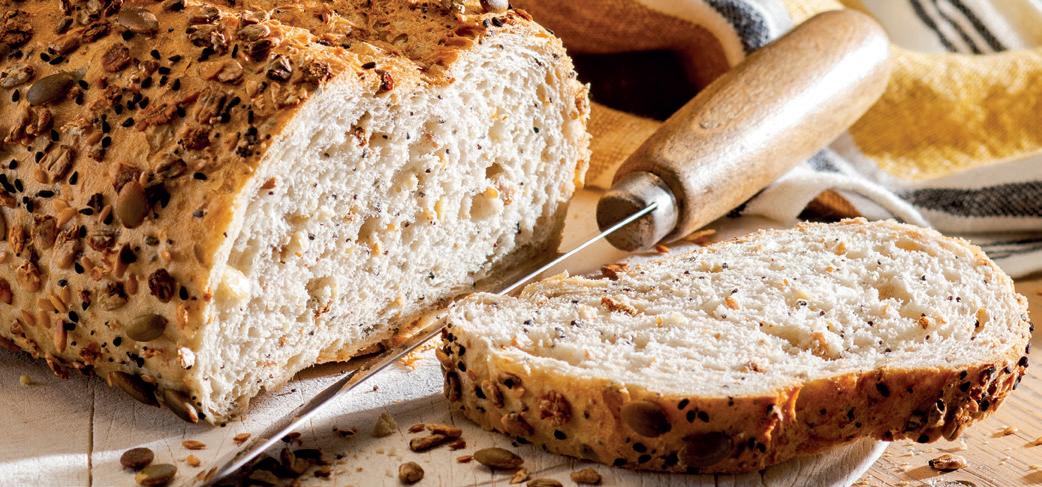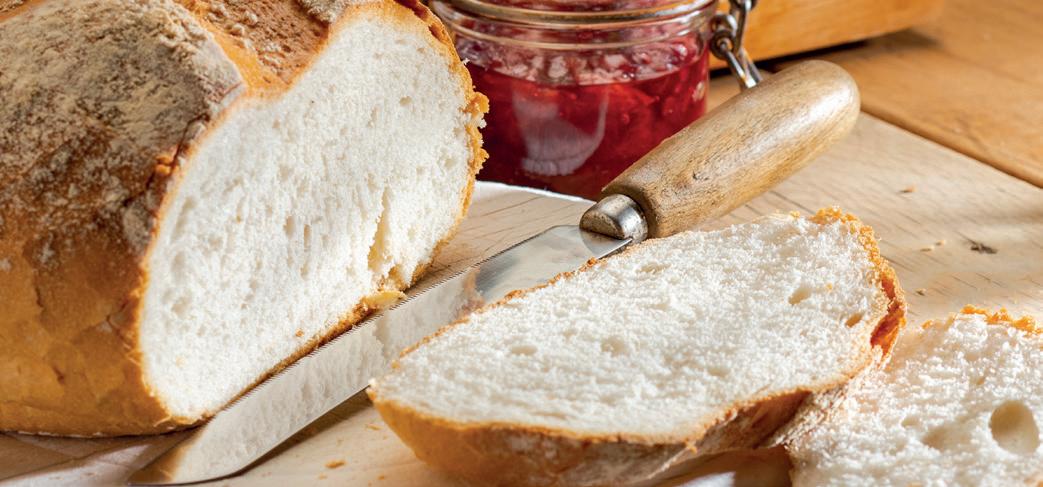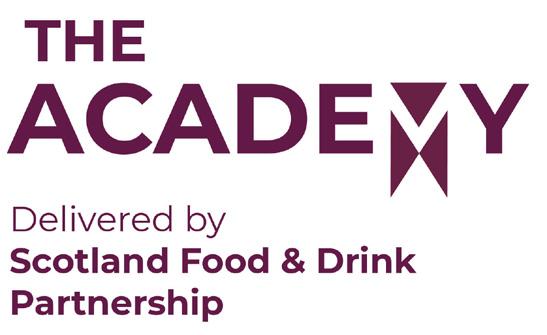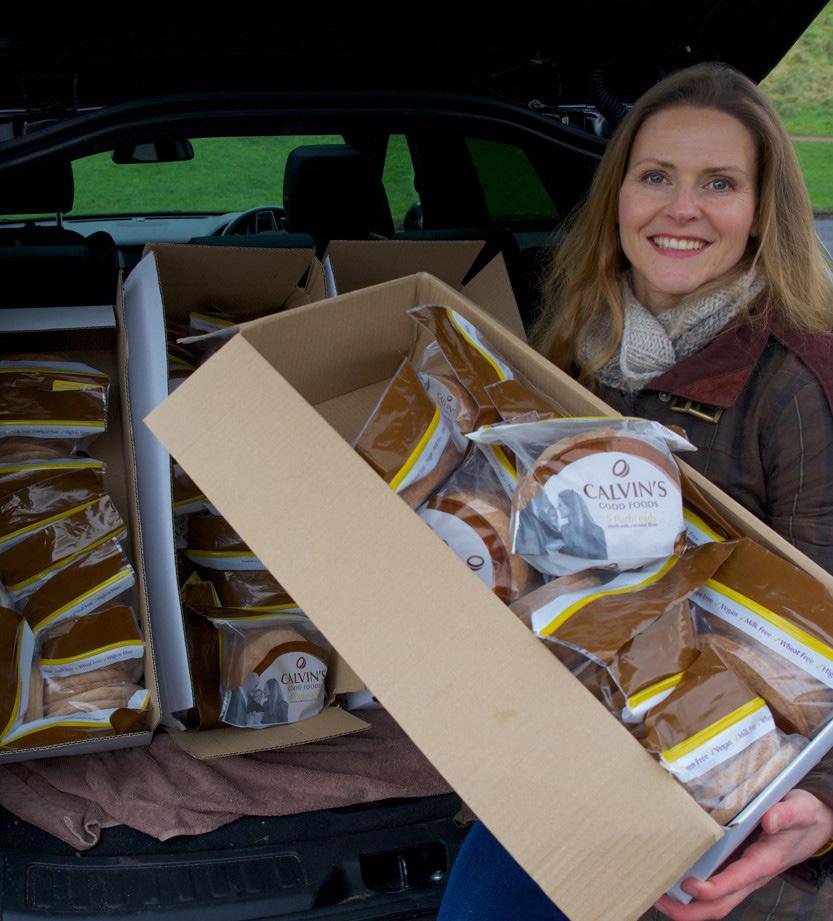
6 minute read
Industry News
THE SCOTTISH BAKER INDUSTRY NEWS
DEPOSIT RETURN SCHEME
Advertisement
Launch date to be reviewed
In early February new information was made available on the Deposit Return Scheme (DRS) which was due to launch in Scotland in July 2022. On 8 March the minister for rural affairs and the natural environment, Ben Macpherson, stated to the Scottish parliament that this date will now be reviewed.
The information made available in February pertained to the process for retailers who wish to be exempt from collecting empty single-use drinks containers when the scheme eventually launches. Any delay to the scheme could bring it in line with the implementation in the rest of the UK in 2023. In the meantime, we continue to work with stakeholders in the Scottish Government and Zero Waste Scotland to seek more detailed guidance which we will bring to members as soon as this is available.
Exemptions information issued in February
- Proximity to an ‘alternative return point’ where another retail premises agrees to take back your containers. We will continue to work with key stakeholders to develop a process for retailers to connect with and get agreement on container take-back from alternative return points. - Food safety/hygiene, where taking back containers means that you would be unable to meet food safety/hygiene standards. We were successful in our lobbying to ensure this route to exemption was included.
Scotland Food & Drink has launched ‘Greening Your Business’, a practical toolkit for Scottish food and drink businesses to reduce their carbon footprint while still improving their bottom line.
Within the toolkit, businesses can find small changes to get started, long term ideas for making processes more efficient, sign posting for funding and one-to-one advice, and guidance on new legislation.
MORE INFORMATION
To find out how ‘Greening Your Business’ could help your business go to https://foodanddrink.scot/resources/ toolkits/greening-your-business/
By wasting less food, you waste less money
A huge amount of food and drink is thrown away in Scotland – almost 1 million tonnes a year, according to recent figures. Well over one-third of this came from businesses. If we look UK-wide, food manufacturers throw away around £1.1 billion worth of food every year. Wasting food wastes money, as well as damaging the environment. By cutting down on food waste, you could: > save on the costs of raw materials > cut your waste disposal bills > reduce your spend on transport and packaging > slash energy and water costs There’s another reason to cut food waste too: research during Covid-19 showed that lockdown food shortages made consumers value food more and made them more concerned about food waste. We want to reduce food waste in Scotland by a third by 2025. As a food manufacturer or processor, how can you help?
Cutting food waste: five easy pieces
Depending on the size of your business and what you do, any or all of these points could have a place in your own business:
1. Collect data on your waste. Find ways to measure or weigh how much food is being wasted or lost – it could be as simple as a bucket and scales, or you may want to use more sophisticated automated methods.
2. Ask how things could be done differently. For example, could buying pre-prepared ingredients (like vegetables) reduce waste and/or address quality control issues in later processes? Would making square biscuits instead of circles save on dough?
3. Train your staff. They may not be operating machinery optimally or using it to its full potential.
4. Look for value in leftovers. Sometimes waste is unavoidable but you may be able to re-use it. Broken biscuits can be added to the ingredients for other batches, excess cooking fats or stocks can add flavour to other recipes, and so on.
5. Remember the power of getting people in a room. The best ideas on reducing or re-using food waste may come from conversations with staff, suppliers or researchers, or networking with other businesses. You can influence these businesses as well as learn from them. Use your influence
Another way to reduce food waste in Scotland is to use your buying power and get the message out there – both upstream and downstream: > Ask suppliers about their food waste reduction plans and collaborate on improvements. > Spread the word across your networks. > Measure and monitor your performance on reducing food waste and use figures and examples in your communications.
> Educate your customers. There’s much more about influencing in our section on ‘Tell your environmental story’
6
Greening Your Business A practical guide for food and drink SMEs

Maximise the softness and freshness of your bread and rolls
New from Fleming Howden – the latest in Bakery Ingredient Technology brought to you in easy to use formats. Everyone wants their breads and rolls to keep soft and fresh for as long as possible. In an ideal world consumers would buy these products fresh every day, but the reality is that the modern customer may only shop once a week and has the expectation that their breads and rolls will remain soft, fresh and mould free for that length of time. We present to you three solutions to help you guarantee that softness and freshness



Extra Fresh FE
This is an enzyme based softening system for ferments. Enzymes are found everywhere in nature and we have created a blend which slow down the effects of staling in fermented products to the extent that after 7 days your products can still taste and feel like freshly baked. The addition of Extra Fresh FE does not even have to be declared on a product label. Extrafresh FE is used at between 1 and 2% flour weight.
DS Stafresh
This is a distilled hydrated Monoglyceride softener declared on a label as E471. It comes in a paste format and is the most effective short term crumb softener available. The DS stands for Double Strength so the addition of just 1% on flour weight will give excellent results.
Vita Diem
This is a Fermented Wheat Flour which when added to yeast raised doughs extends the mould free shelf life of the baked products. Declared on a label as Fermented Wheat Flour this product is a natural alternative to Calcium Propionate the most commonly used antimould agent which although effective gives a smell and taste to breads and requires a label declaration of E282. Vita Diem is added at between 0.5 and 1% of flour weight.
All of the above products can be combined to suit the needs of your products and customer base. Fleming Howden can give free expert advice and assist with sampling and trialling of recipes to get the results that you need. Call or email now for free product samples and advice from the experts in this field.





